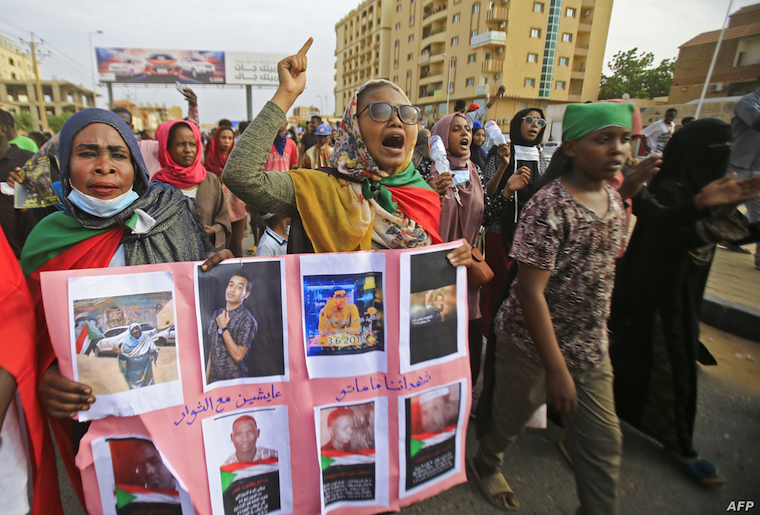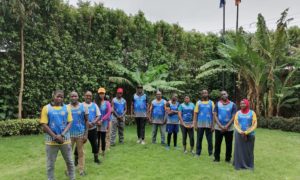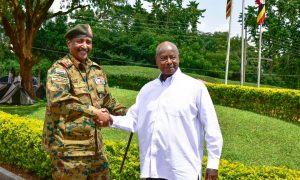
At least four protesters were killed and many injured by gunfire Thursday in the Sudanese city of Omdurman, opposition medics said, as hundreds of thousands took to the streets to pile pressure on the country’s military rulers.
Organizers had called for a million-person march in cities across Sudan in response to the killing of young protesters in El-Obeid, southwest of the capital Khartoum, earlier this week.
Sudan has been gripped by months of political turmoil that climaxed in the army overthrowing long-time leader Omar al-Bashir in April. Protesters have kept up their rallies since then, pressing the army to hand over power to civilians, accusing the security services of violence, and decrying the shortages and economic hardships that triggered the unrest in the first place.
Thursday’s killings, reported by the Central Committee of Sudan Doctors, one of the main protest groups, came as opposition leaders said there had been some progress in talks with the military on a deal to form a new government after Bashir’s ousting.
Despite signing a deal in July which secured a three-year transition period and a joint sovereign council with a rotating leadership, talks over the wording of a constitutional declaration on the changes have stumbled.
“The agreement is really now just around the corner,” Satea al-Hajj, a leader in the Forces of Freedom and Change (FFC) coalition of opposition groups, said in a press conference Thursday in Khartoum.
Negotiations were set to restart later Thursday, the spokesman for the military council said.
‘It’s too bad’
The opposition had demanded that members of the sovereign council, which is intended to lead the country until elections are held, should not be granted blanket immunity from prosecution for past crimes. But FFC leaders said Thursday they had agreed that they could be granted only “procedural immunity” — meaning top officials could be tried with the permission of two-thirds of the legislative council.
The opposition leaders said both sides also agreed on another key point, reaffirming that the parties included in the FFC would have 67% of the legislative council while the rest would be granted to other opposition and political groups.
Sudan’s ruling military council did not immediately confirm the details of the agreements. In Omdurman, across the Nile from Khartoum, protesters chanted “it’s too bad, it’s too bad, we don’t have an army,” expressing anger at the army for not protecting protesters.
Footage posted on social media also showed protests breaking out in El-Obeid, the state capital of North Kordofan state, and Wad Medani, the state capital of Jazeera state, southeast of the capital on the Blue Nile.
Accusations against military
The FFC has accused military and paramilitary forces of firing on the high school pupils as they protested over bread and fuel shortages in El-Obeid on Monday.
The Sudanese Professionals Association (SPA), the main protest group and a leading voice in the FFC, accused the military of failing to protect civilians and of attempting to prevent “the masses from achieving the goals of the revolution.”
A senior army commander said a security force assigned to guard a bank was responsible for killing children protesting near there, the official SUNA news agency reported Thursday.
The bank guards were a government security force. Opposition groups have also accused the main paramilitary group, the Rapid Support Forces, of killing scores of protesters since Bashir was ousted and the RSF’s role remains a point of contention.
The FFC said Thursday that the RSF should be merged into the armed forces, a proposal opposed by Sudan’s ruling generals, said al-Hajj.




























